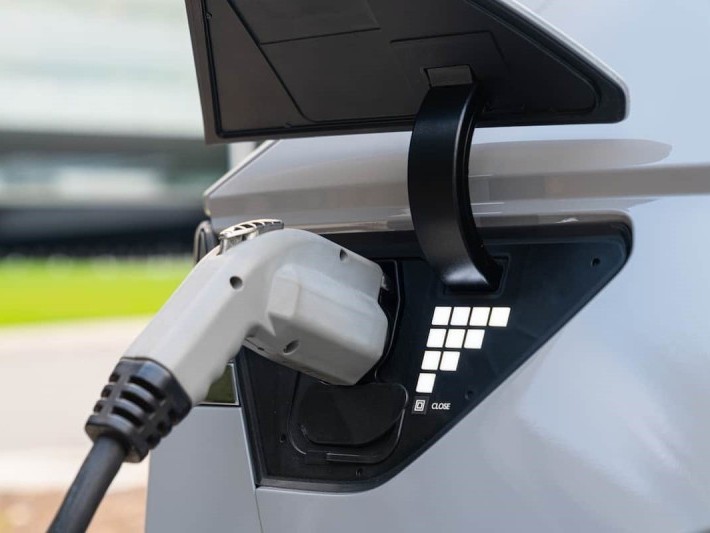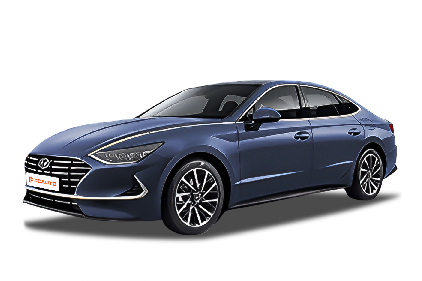Q
What is the most common problem with the 2017 Hyundai Sonata?
The most common issues with the 2017 Hyundai Sonata are engine-related problems, especially with the 2.4-liter Theta II GDI engine, which may experience excessive oil consumption or engine knocking. This can lead to engine damage or warning lights, so it's advisable to regularly check oil levels and perform timely maintenance. Additionally, some owners have reported abnormal noises or sticking in the steering system at low speeds, which is usually related to the steering column or electronic power assist system and requires professional inspection. In terms of the electronic system, the infotainment screen occasionally freezes or becomes unresponsive; restarting the system or updating the software usually fixes this. For the body, the sunroof drain tubes may clog due to design issues, causing water leaks. Regular cleaning of the drain holes can prevent this problem. For used car buyers, it's recommended to check the vehicle's service records to ensure key components like the engine and transmission are in good condition, and also pay attention to any unaddressed recall items—for example, some batches were recalled due to ABS module issues. Regular maintenance and using the correct oil grade can effectively extend engine life. If you notice unusual noises or abnormal oil consumption, have it checked early to avoid minor issues turning into major repairs.
Special Disclaimer: This content is published by users and does not represent the views or position of PCauto.
Related Q&A
Q
What is the battery problem on the 2017 Hyundai Sonata Hybrid?
The battery issues with the 2017 Hyundai Sonata Hybrid mainly center on some vehicles experiencing premature aging of the hybrid battery pack or decreased capacity retention. This can trigger the hybrid system warning light on the dashboard, noticeably reduce electric-only driving range, or cause abnormal increases in fuel consumption. These problems are typically related to imbalanced cell voltages or calibration deviations in the battery management system. If you encounter such issues, it's advisable to visit an authorized service center promptly for professional diagnosis. Technicians will use specialized equipment to read battery pack health data and perform cell balancing or replace faulty modules if necessary. For hybrid vehicle owners, it's important to avoid prolonged parking in extreme high-temperature environments, use the vehicle regularly to maintain battery activity, and inspect the high-voltage battery cooling system every 2 years as recommended in the maintenance manual. Hyundai provides an 8-year or 160,000-kilometer warranty for hybrid batteries, and if a genuine battery pack quality issue is confirmed, warranty service will be honored. Hybrid battery technology has advanced significantly in recent years, with newer generations offering improved durability and temperature adaptability. Proper usage habits can effectively extend battery life.
Q
Is the 2017 Sonata a reliable car?
The 2017 Hyundai Sonata delivers above-average reliability. Its powertrain, especially the 2.4L naturally aspirated engine paired with the 6-speed automatic transmission, has been market-tested with low failure rates and reasonable routine maintenance costs, making it a solid pick for practicality-focused buyers. Safety-wise, it comes with the mainstream features of its time: ABS, ESP, and multiple airbags, giving it decent passive safety performance. However, before buying, it’s wise to check individual units for common minor electronic glitches—think infotainment systems or window control modules. These issues are usually preventable with regular servicing.
In its class, the Sonata’s suspension is tuned for comfort, ideal for family use, though it doesn’t match European models in handling sharpness. If you’re eyeing a used one, prioritize those with complete service records. Pay extra attention to transmission fluid changes and timing belt condition—these key components directly impact long-term ownership satisfaction.
Fuel economy is mid-pack for the segment: expect around 9-11 L/100km in city driving and 6-8 L/100km on the highway, depending on driving habits and road conditions.
Q
How many miles will a 2017 Hyundai Sonata last?
Under normal maintenance and driving conditions, a 2017 Hyundai Sonata can typically clock in 200,000 to 300,000 kilometers. Its actual lifespan really hinges on things like driving habits, how often you service it, and the road conditions it's subjected to. The 2.4L four-cylinder and 2.0L turbo engines under the hood are pretty solid tech-wise. Keep up with regular oil changes, transmission fluid swaps, and timing belt replacements, and you'll definitely squeeze more miles out of it. The Sonata's chassis and suspension are built tough too, handling our local variable road conditions like a champ. I'd recommend a minor service every 5,000 to 8,000 kilometers and checking the transmission and brakes every 30,000 kilometers. That way, you can avoid major repairs and keep the car running strong. Also, sticking with OEM or high-quality replacement parts and staying away from cheap fuel and oils goes a long way in extending its life. If you're doing a lot of highway driving or hitting rough roads often, you might want to shorten those service intervals a bit. All in all, with proper maintenance and mindful driving, this car should easily hit or even exceed the average lifespan and mileage.
Q
Does a 2017 Hyundai Sonata have a catalytic converter?
The 2017 Hyundai Sonata does come with a catalytic converter. It's a must-have component that Hyundai included to meet global emissions standards, mainly to cut down on harmful stuff in the exhaust like carbon monoxide, hydrocarbons, and nitrogen oxides. Usually, you'll find this converter in the exhaust system, close to the engine, so it can start cleaning up those pollutants right away before the exhaust gases even hit the tailpipe. For owners, keeping an eye on the catalytic converter's condition is pretty important. If it goes bad, not only will your car's performance and fuel efficiency take a hit, but you might also fail emissions tests, and that engine check light will probably start flashing. If you notice your Sonata's losing power, guzzling more gas, or the exhaust smells weird, it might be time to check if the converter is clogged or damaged. On top of that, catalytic converters have precious metals inside—platinum, palladium, rhodium—so they're a hot target for thieves. It's a good idea to park in well-lit, secure spots. Hyundai built the Sonata's catalytic converter to last, but in real-world use, you still need to take care of it. Avoid using cheap fuel or oil; that stuff can really mess it up over time.
Q
Why is my check engine light on my 2017 Hyundai Sonata?
The check engine light coming on in a 2017 Hyundai Sonata can stem from several common issues: a faulty oxygen sensor, a loose gas cap, reduced catalytic converter efficiency, worn spark plugs or ignition coils, and a dirty mass airflow sensor. All these problems trigger error codes in the OBD-II onboard diagnostic system. It's advisable to use an OBD-II scanner as soon as possible to read the specific trouble codes, such as P0172 (rich fuel mixture) or P0420 (catalytic converter efficiency below threshold), for precise troubleshooting. If immediate scanning isn't available, start by checking if the gas cap is properly sealed or notice if the vehicle exhibits accompanying symptoms like sluggish acceleration or abnormal fuel consumption. It's important to note that Hyundai's lambda sensors and evaporative emission control systems are quite sensitive to fuel quality; prolonged use of lower-octane gasoline can accelerate carbon buildup. During regular maintenance, periodically add the manufacturer-recommended fuel additives and replace the air filter on schedule—these small details can effectively prevent the check engine light from illuminating unnecessarily. If the check engine light is flashing, stop driving immediately, as this typically indicates a severe misfire that could damage the catalytic converter.
Q
What motor is in a 2017 Hyundai Sonata?
The 2017 Hyundai Sonata offered two gasoline engine options in the local market: a 2.0-liter MPI naturally aspirated four-cylinder and a 2.4-liter GDI direct-injection four-cylinder. The former cranks out 152 horsepower and 192 Nm of torque, while the latter ups the ante to 185 horsepower and 241 Nm, both mated to a 6-speed automatic transmission. These engines utilized Hyundai's then-mainstream Theta II technology, focusing on fuel efficiency and smooth performance—with the 2.4-liter variant adding direct injection for better combustion efficiency. It's worth noting that while higher-spec international models got 1.6T turbocharged or hybrid powertrains, those options never made it to local shores. Hyundai's Theta II engine series built a reputation for reliability, featuring all-aluminum blocks to cut weight and dual continuously variable valve timing. For regular maintenance, sticking with API SN-rated 5W-30 oil is recommended, and periodic timing chain component replacements will help extend engine life. Engines in these mid-size sedans are definitely tuned more for long-haul comfort than outright sportiness.
Q
What is the engine warranty on a 2017 Hyundai Sonata?
The original engine warranty for the 2017 Hyundai Sonata typically lasts 5 years or 100,000 kilometers, whichever comes first. This warranty covers manufacturing defects in core engine components, though specific terms may vary depending on the vehicle's usage and maintenance records. It's advisable for owners to check the accompanying warranty manual or contact an authorized dealer for detailed information. Notably, Hyundai's warranty policies are among the longer ones in the industry, reflecting the brand's confidence in the reliability of its powertrains. By regularly replacing oil, filters, and other key maintenance items as required in the service manual, owners not only ensure their warranty coverage but also effectively extend the engine's lifespan. Additionally, used car owners should note that the original warranty usually stays with the vehicle, not the owner. As long as the vehicle is still within the warranty period and has complete maintenance records, warranty services can still be enjoyed. However, after transferring ownership, it's recommended to update the warranty information promptly to avoid potential disputes later on.
Q
Is the 2017 Hyundai Sonata a safe car?
The 2017 Hyundai Sonata holds its own when it comes to safety, packing in a solid set of active and passive safety tech. You're looking at standard features like six airbags, Electronic Stability Control (ESC), Anti-lock Braking System (ABS), and a rearview camera. Step up to the higher trims, and you might score advanced driver-assistance goodies such as blind-spot monitoring, lane keep assist, and automatic emergency braking. It snagged a "Top Safety Pick" rating from the Insurance Institute for Highway Safety (IIHS), which means it aced tests for front, side, and roof strength—so it’s got your back (and front, and sides) when it comes to protecting passengers. If safety’s high on your list, the 2017 Sonata is definitely worth a spot on your shortlist.
Hyundai’s also been upping its game big time with safety tech lately. A lot of their newer models are rolling out with more advanced driver aids, think adaptive cruise control and pedestrian detection. These aren’t just fancy add-ons—they actually make driving safer and hint at where the auto industry’s headed. If you’re hunting for a used Sonata, do yourself a favor: check that all the safety features are still there and working, and make sure there’s a solid maintenance record. You want to be sure those safety systems are in tip-top shape.
Q
What kind of engine does a 2017 Hyundai Sonata have?
The 2017 Hyundai Sonata offers two gasoline engine options in the local market. The base model comes with a 2.0-liter MPI naturally aspirated four-cylinder engine, churning out 152 horsepower and 192 Nm of torque—perfect for daily commuting. Step up to the higher trim, and you get a 2.4-liter GDI direct-injection naturally aspirated engine, packing 180 horsepower and 232 Nm of torque for more spirited performance. Both engines are paired with a 6-speed automatic transmission with manual mode, balancing smoothness and fuel efficiency nicely.
What's worth noting is the GDI technology here—it uses high-pressure direct fuel injection to optimize combustion efficiency. Hyundai engineers also did a solid job with engine sound deadening, keeping operational noise nicely in check. For buyers who value reliability, these market-proven powertrains come with relatively reasonable maintenance costs. The factory recommends regular servicing every 10,000 kilometers, and 5W-30 viscosity oil is all you need.
In its class, this powertrain setup strikes a good balance between practicality and a bit of driving fun. Plus, Hyundai's five-year/unlimited-mileage warranty policy helps ease any long-term ownership worries.
Q
How many miles will a 2017 Sonata last?
The 2017 Hyundai Sonata can typically hit 200,000 to 300,000 kilometers with regular maintenance and normal driving. Of course, its actual lifespan depends on things like driving habits, how often you service it, and the road conditions you usually face. The 2.4L and 2.0T engines under the hood are pretty solid tech-wise—keep up with regular oil changes, transmission fluid swaps, and timing belt replacements, and they’ll hold up well. For day-to-day care, I’d recommend basic service every 5,000 to 8,000 kilometers. Pay extra attention to the cooling system and transmission, too; keeping those in check really helps stretch the car’s life. If you’re looking at a used one, definitely get a pro inspection to check the engine, transmission, and chassis. These midsize sedans often last over 10 years if they’ve been taken care of. Hyundai’s durability has stepped up a lot lately, and plenty of owners say major components still work fine even after 150,000+ kilometers. Want to make it last even longer? Simple stuff like regular tire rotations, checking the brakes, and avoiding long idles go a long way. Stick with those habits, and your Sonata should keep rolling for years.
Latest Q&A
Q
What is the battery problem on the 2017 Hyundai Sonata Hybrid?
The battery issues with the 2017 Hyundai Sonata Hybrid mainly center on some vehicles experiencing premature aging of the hybrid battery pack or decreased capacity retention. This can trigger the hybrid system warning light on the dashboard, noticeably reduce electric-only driving range, or cause abnormal increases in fuel consumption. These problems are typically related to imbalanced cell voltages or calibration deviations in the battery management system. If you encounter such issues, it's advisable to visit an authorized service center promptly for professional diagnosis. Technicians will use specialized equipment to read battery pack health data and perform cell balancing or replace faulty modules if necessary. For hybrid vehicle owners, it's important to avoid prolonged parking in extreme high-temperature environments, use the vehicle regularly to maintain battery activity, and inspect the high-voltage battery cooling system every 2 years as recommended in the maintenance manual. Hyundai provides an 8-year or 160,000-kilometer warranty for hybrid batteries, and if a genuine battery pack quality issue is confirmed, warranty service will be honored. Hybrid battery technology has advanced significantly in recent years, with newer generations offering improved durability and temperature adaptability. Proper usage habits can effectively extend battery life.
Q
Is the 2017 Sonata a reliable car?
The 2017 Hyundai Sonata delivers above-average reliability. Its powertrain, especially the 2.4L naturally aspirated engine paired with the 6-speed automatic transmission, has been market-tested with low failure rates and reasonable routine maintenance costs, making it a solid pick for practicality-focused buyers. Safety-wise, it comes with the mainstream features of its time: ABS, ESP, and multiple airbags, giving it decent passive safety performance. However, before buying, it’s wise to check individual units for common minor electronic glitches—think infotainment systems or window control modules. These issues are usually preventable with regular servicing.
In its class, the Sonata’s suspension is tuned for comfort, ideal for family use, though it doesn’t match European models in handling sharpness. If you’re eyeing a used one, prioritize those with complete service records. Pay extra attention to transmission fluid changes and timing belt condition—these key components directly impact long-term ownership satisfaction.
Fuel economy is mid-pack for the segment: expect around 9-11 L/100km in city driving and 6-8 L/100km on the highway, depending on driving habits and road conditions.
Q
How many miles will a 2017 Hyundai Sonata last?
Under normal maintenance and driving conditions, a 2017 Hyundai Sonata can typically clock in 200,000 to 300,000 kilometers. Its actual lifespan really hinges on things like driving habits, how often you service it, and the road conditions it's subjected to. The 2.4L four-cylinder and 2.0L turbo engines under the hood are pretty solid tech-wise. Keep up with regular oil changes, transmission fluid swaps, and timing belt replacements, and you'll definitely squeeze more miles out of it. The Sonata's chassis and suspension are built tough too, handling our local variable road conditions like a champ. I'd recommend a minor service every 5,000 to 8,000 kilometers and checking the transmission and brakes every 30,000 kilometers. That way, you can avoid major repairs and keep the car running strong. Also, sticking with OEM or high-quality replacement parts and staying away from cheap fuel and oils goes a long way in extending its life. If you're doing a lot of highway driving or hitting rough roads often, you might want to shorten those service intervals a bit. All in all, with proper maintenance and mindful driving, this car should easily hit or even exceed the average lifespan and mileage.
Q
Does a 2017 Hyundai Sonata have a catalytic converter?
The 2017 Hyundai Sonata does come with a catalytic converter. It's a must-have component that Hyundai included to meet global emissions standards, mainly to cut down on harmful stuff in the exhaust like carbon monoxide, hydrocarbons, and nitrogen oxides. Usually, you'll find this converter in the exhaust system, close to the engine, so it can start cleaning up those pollutants right away before the exhaust gases even hit the tailpipe. For owners, keeping an eye on the catalytic converter's condition is pretty important. If it goes bad, not only will your car's performance and fuel efficiency take a hit, but you might also fail emissions tests, and that engine check light will probably start flashing. If you notice your Sonata's losing power, guzzling more gas, or the exhaust smells weird, it might be time to check if the converter is clogged or damaged. On top of that, catalytic converters have precious metals inside—platinum, palladium, rhodium—so they're a hot target for thieves. It's a good idea to park in well-lit, secure spots. Hyundai built the Sonata's catalytic converter to last, but in real-world use, you still need to take care of it. Avoid using cheap fuel or oil; that stuff can really mess it up over time.
Q
Why is my check engine light on my 2017 Hyundai Sonata?
The check engine light coming on in a 2017 Hyundai Sonata can stem from several common issues: a faulty oxygen sensor, a loose gas cap, reduced catalytic converter efficiency, worn spark plugs or ignition coils, and a dirty mass airflow sensor. All these problems trigger error codes in the OBD-II onboard diagnostic system. It's advisable to use an OBD-II scanner as soon as possible to read the specific trouble codes, such as P0172 (rich fuel mixture) or P0420 (catalytic converter efficiency below threshold), for precise troubleshooting. If immediate scanning isn't available, start by checking if the gas cap is properly sealed or notice if the vehicle exhibits accompanying symptoms like sluggish acceleration or abnormal fuel consumption. It's important to note that Hyundai's lambda sensors and evaporative emission control systems are quite sensitive to fuel quality; prolonged use of lower-octane gasoline can accelerate carbon buildup. During regular maintenance, periodically add the manufacturer-recommended fuel additives and replace the air filter on schedule—these small details can effectively prevent the check engine light from illuminating unnecessarily. If the check engine light is flashing, stop driving immediately, as this typically indicates a severe misfire that could damage the catalytic converter.
View MoreRelated News

In Malaysia, which sliding door MPVs are available?
MichaelOct 30, 2025

Modern Ioniq 5 N Lands in Malaysia: Track-Level Performance Electric Vehicle is Here, Priced Possibly Below RM 400,000?
JohnSep 10, 2025

Hyundai's Big Return to Malaysia: Top 5 Models Expected
MichaelMay 30, 2025

580,000 km & 87.7% Battery Health: Ioniq 5’s Incredible Durability
MichaelMay 6, 2025

Revolutionizing Hybrids: Hyundai’s New System vs. Toyota's Hybrid System
Kevin WongApr 22, 2025
View More













Pros
Cons